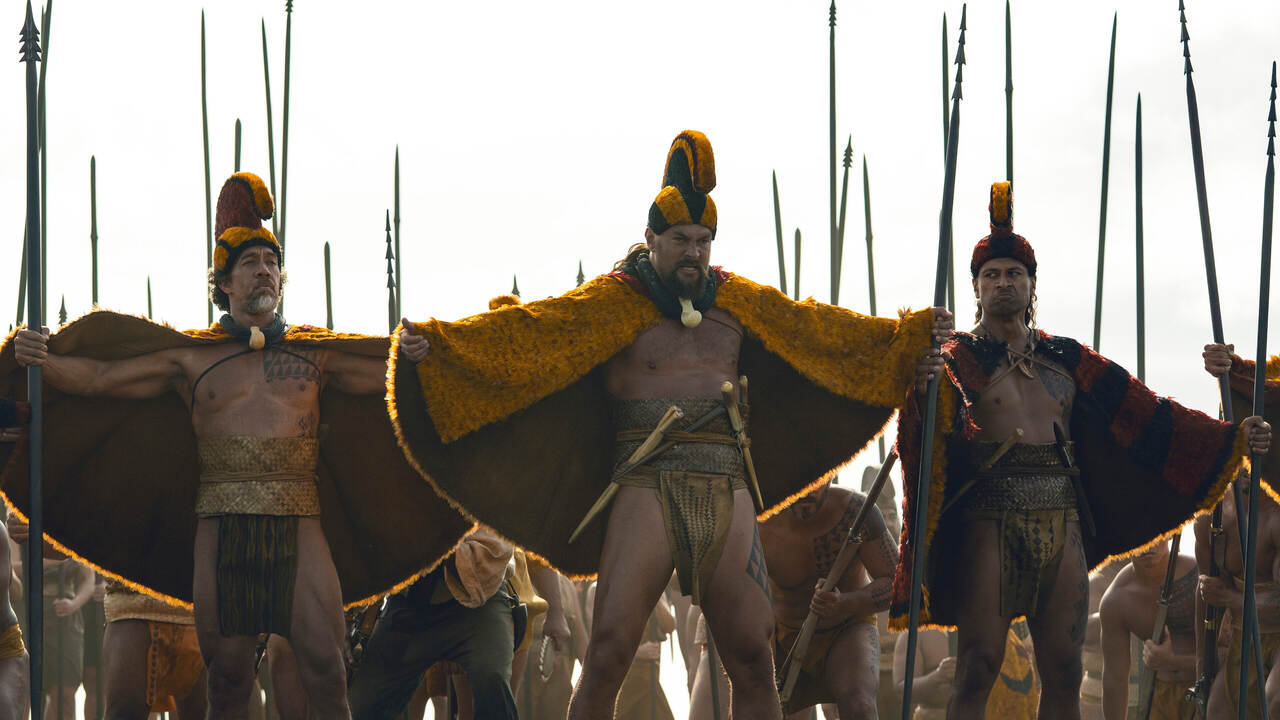
I’ve just watched The Black Desert, the finale of Chief of War Season 1, and I want to unpack what works, what misfires, and what I’ll remember long after the credits roll. This isn’t just another episode; it’s the turning point where every tension the show has been building pays off. For most of its run, Chief of War has walked this line between sweeping epic and intimate character drama. In this episode, those two aspects collide sometimes in brilliant ways, sometimes less so.
Visually and atmospherically, the episode earns its place as a crescendo. The landscapes are harsh and beautiful; the arid tones, dust, and raw textures lean into the idea of “desert” not just as geography but as metaphorical space emptying, exposing, stripping away. As Kaʻiana and Kamehameha marshal their men, the cost of war is laid bare. I felt the weight of loss more than once: loss of lives, loss of trust, loss of innocence.
Jason Momoa as Kaʻiana shines. He carries the weariness of the campaign when you're fighting for something greater than yourself; the inner conflicts matter as much as the outward skirmishes. Here, Kaʻiana questions leadership, questions unity, and questions whether what they are building will still honor what they are sacrificing. The show has done well in giving him that complexity; this episode pushes him nearly to breaking, and Momoa doesn’t shy away from letting us see that.
The battle itself is ambitious. The scale is larger than what we’ve seen before in the series. You get strategy, betrayals, desperate charges, and moments of quiet before the storm. Some sequences, especially those of the clash with Maui and Keoua, feel visceral and urgent. The sound design, the clash of weapons, the cries, it pulls you into fear, hope, dread, all at once.
But the episode isn’t perfect. For all its power, pacing becomes a problem. In trying to give every major character their moment, Kaʻiana, Kamehameha, Kaʻahumanu, and Keoua, the script sometimes loses focus. There are beats where it feels like we’re drifting: a character has a crisis, then suddenly they’re back on the battlefield without much transition. Emotional build-up sometimes doesn’t land because the screen time to process the fallout is short.
Some of the stakes feel familiar. The tension between unity and betrayal, the cost of leadership, the moral question “how far will you go to protect your people”—these are classic in war epics. Chief of War has handled these before, so the finale doesn’t always surprise. There are moments where the show leans into the expected, which undercuts some of the risk.
Still, the finale earns more than it gives away. The episode doesn’t feel like it’s merely wrapping up loose ends; it forces decisions, forces transformation. Kamehameha is no longer just a figurehead of destiny; he becomes someone who must bear consequences. Kaʻiana, too, steps into clarity not only of what he wants, but what he cannot compromise. There’s tragedy, yes: death, betrayal, the kind of courage that costs everything. But there are victories too, not just over enemies, but over doubt and fear.
One area I wished the episode did better: some of the supporting relationships that have been interesting all season don’t get enough resolution. Kaʻahumanu, Kupuohi, and others have had arcs of agency, of negotiation, of moral wrestling. In the finale, they sometimes become a backdrop to the Great War instead of full participants in its fallout. Their presence matters, but their internal worlds feel less explored under the final hour’s pressure.
Also, while the battle is fierce, some logistics in the warfare montage feel a bit clean for how brutal the rest of the show has been. For a show that doesn’t spare blood, the finale sometimes slips into stylization that softens what should hurt more.
What I appreciate most: the show keeps its cultural bones intact. It’s clear that the Hawaiian kingdoms, the dynamics between chiefs, the spiritual context, and the way land, lineage, and honor weave through decisions, all of that remains central. It’s not just a spectacle with native trimmings; it’s a story trying to claim history with respect.
By the end of The Black Desert, you know everything has changed. The war has shifted from external conflict to internal reckoning. Kaʻiana can’t go back to who he was before. Kamehameha can’t lead the same way. And for the viewer, the sense is that unification is possible, but maybe only at a cost that leaves scars.
In sum, The Black Desert is a strong season finale that mostly delivers on its promise: epic scale, strong character arcs, moral ambiguity, and visual splendor. It stumbles in pacing and in giving every supporting voice equal weight. But those are forgivable when the core Kaʻiana’s struggle, the clash of kingdoms, the reminder that history isn’t clean, is compelling.
Final Score- [7/10]
Hi Everyone, after a due consideration, we have decided that we will be open for donations to help us in managing our website. We will be greatful for any kind of amount we receive. Thanks!
— Midgard Times 🎬 (@Moviesr_net) January 4, 2026
PayPal- [email protected] pic.twitter.com/DlNNz5Npm5
Get all latest content delivered to your email a few times a month.
Bringing Pop Culture News from Every Realm, Get All the Latest Movie, TV News, Reviews & Trailers
Got Any questions? Drop an email to [email protected]